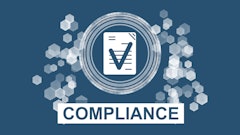Regardless of the state of the economy or your business, effectively controlling and leveraging the cost of externally acquired services is finally being recognized as important to your company as its ability to grow revenues. Business leaders recognize that effective third-party relationships represent more than a budget line or two in operating costs, more than an opportunity for cost reduction, and more than a source of supplies and services. A point of differentiation for leading organizations is their ability to recognize that strategic relationships, outsourcing partners and top-notch vendors can and will help them deliver their business strategies and meet expectations from Wall Street to lower costs and reduce business risks.
There is a new type of professional earning an increased level of respect around the senior management table, leading the way to increased profits and lower costs. So move over and make room for the head of global sourcing and procurement, the uniquely skilled Chief Sourcing Officer (CSO). This C-level executive is capable of transforming the relationships between your business leaders and your key service providers and suppliers into a competitive advantage. Your Chief Sourcing Officer acts as a liaison between your business leaders and your most important third-party relationships, gaining access to their best and brightest to enable innovation, tight cost management and superior performance. The Chief Sourcing Officer will ensure that your organization gets maximum value from key service provider and supplier relationships, while minimizing costs and risks.
In more progressive organizations, in addition to reducing costs the CSO is charting a new course to dramatically improve operational performance, establish alliances to open new sales channels and markets, source partners to jointly launch new products, and upgrade the operational performance of business operations. The new value proposition includes establishing clear expectations complemented by performance metrics that are designed to improve company performance. Internally, the CSO will streamline the company's internal supply chain processes and proactively manage the demand for goods and services.
The profile of this new executive is very different than the image of a grizzled Procurement Manager. No more table-pounding tactics, extracting the last penny from weary suppliers. This new leader is one part visionary, strategist, change agent and innovator; one part seasoned business leader; and one part disciplined negotiator and deal engineer, complemented by excellent relationship management skills. This key executive is leading a new generation of professionals, keenly focused on creating new sources of value by leveraging the company's third-party costs.
To be clear, Sourcing is defined as "the process of assessing the organization's business requirements while identifying opportunities, both internal and external, for total cost reduction, effective third-party relationships to create a competitive advantage for the corporation." Value is created through better buying decisions. The CSO must work toward understanding key business drivers, both internally and externally, and developing higher standards of performance for the organization's supplier base. Internally, the CSO improves the buying behaviors of internal clients and sets standards for managing third-party relationships for highest return.
An effective Sourcing organization starts with a deep understanding of the business-line strategy and how the third-party relationship can or will support the business now and in the future. The skilled CSO is focused on aligning Sourcing strategies with business goals, seeking:
- Access to superior technology, skills and processes
- Reducing or transforming costs (eg: fixed to variable), avoiding capital investment, etc.
- Minimizing the total cost of ownership (TCO)
- Protecting intellectual property
- Maintaining control over core competencies
- Enabling joint product development
- Improving customer service
- Creating a "win/win" through mutually beneficial deal structures
- Negotiating highly complex service agreements
- Managing internal demand for goods and services
- Designing effective exit strategies
An effective CSO will also ensure the company complies with relevant regulatory requirements and that business leaders have the tools to manage supplier performance.
CSOs are responsible for formulating strategies that best align a global supplier network with current and emerging business strategies. This C-level executive directs cross-functional teams through structured Sourcing processes, methodologies and demand management activities. At the heart of a successful Sourcing event is a collaborative approach to fact-based decisions that involve all key stakeholders. Separating needs from wants, relying on solid financial principles and completing comprehensive due diligence usually means that the supplier selection decision is both obvious and unanimous.
The Power of the CSO
There are four major areas within an organization that a CSO can influence business performance:
Performance Management
Sourcing demand management is the systematic analysis of costs and processes associated with the acquisition and use of third-party goods and services. This includes reviewing product specifications, benchmarking, supplier market analysis, understanding and analyzing volume and usage, buying patterns and behaviors, contract terms, and inventory control. The CSO's team of professionals identifies, assesses and influences factors that drive quantity, frequency, price, and use and specifications in order to reduce demand or costs. They also ensure that supplier performance meets or exceeds terms and controls within the contract and continuously improve financial benefits and customer satisfaction through continual optimization of the arrangement. They may also be called on to trouble-shoot complex issues and supplier performance problems.
Governance
An effective corporate Sourcing governance program focuses on regulatory compliance for third-party relationships. Governance programs protect the company by assessing, managing and monitoring the risks associated with third-party service providers. Governance embraces the goals and directives of the organization and ensures that the organization remains compliant with all applicable regulations. "Our research indicates governance creates most of the value in multi-year outsourcing agreements," says Peter Bendor-Samuel, CEO of the Everest Group, a leading outsourcing advisor firm. "We've found structuring and negotiating the deal only creates 20 percent of the value. Governance produces the other 80 percent."
Offshoring
Offshore sourcing focuses on developing strategies and programs that enable an organization to access and manage global third-party services and relationships. Offshore relationships must meet multi-jurisdictional regulatory requirements while optimizing financial and non-financial benefits.
David Jensen, senior vice president with Genpact, a leading global business process services and technology solutions company, says, "Many of our most successful relationships come as the result of strong leadership from the CSO. The seasoned sourcing professional has a fiduciary responsibility in the selection process that cannot be discounted. The CSO provides advice to organizational leaders and designs executable programs that minimize effort and risk for offshore sourcing events."
Genpact, which is 40 percent owned by the diversified technology, media and financial services company GE, appreciates the importance of metrics in all third-party relationships, however according to Jensen, "this does not take the place of the need for both parties to be strategically aligned. The CSO can assist an organization in striking a balance between "analysis paralysis" and the innovation and creativity needed to meet the strategic goals and objectives of both organizations." Jensen concludes, "The biggest risk at CSO faces is being viewed as slowing the process down. A speedy, yet complete, process is one of the greatest compliments a CSO brings to the team."
Outsourcing
Outsourcing is a common term for the process that Sourcing professionals lead to enable the enterprise to determine make-or-buy decisions for operations and/or services. It involves sourcing a service provider while transforming the organization's internal employee base, processes, competencies and technology. Outsourcing offers more risk than other types of relationships, enabling the CSO to provide the highest return on time invested in the sourcing process.
In an increasingly complex business world, smart companies have recognized the value of a competent Chief Sourcing Officer. If you have ever experienced a painful divorce from a key supplier relationship, you surely regret entering the arrangement without your trusted advisor at your side.
About the Authors: Cyndi Joiner is managing director and member of the Executive Management Team at Sourcing Interests Group, a provider of ongoing forums and supporting services that assist companies in the sourcing of goods and services and the outsourcing of information technology and business processes. She has 15+ years of leadership experience in the areas of operational procurement, strategic sourcing, supply chain and business process outsourcing. As Senior Vice President and Chief Sourcing Officer at holding company Fifth Third Bank, Linda Tuck Chapman implemented and manages a world-class Bancorp "Centre of Excellence" for Strategic Sourcing, Sourcing Demand Management, and Offshoring and Sourcing Governance. She and her team oversee acquisition, management and regulatory compliance for approximately $1.5 billion annual spend.


























